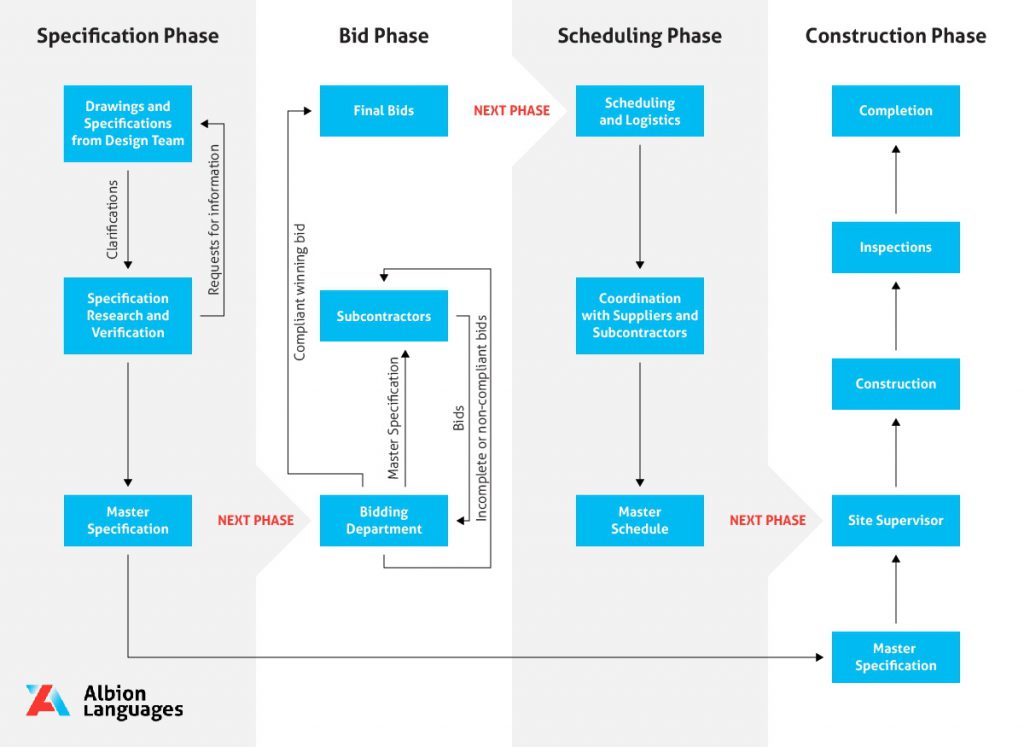The perpetual development of the technological world – and our increasing reliance upon it – has led to the lowering of many historical borders. As a consequence, countless business opportunities which would have once seemed logistically impractical are now commonplace.
Although technology may seem to make the world a smaller place, it also creates a growing challenge: communication. Communicating in multiple languages is vital for companies that are – or want to become – global. This highlights the ever-growing importance of translation services.
Well-translated and localised content has the power to drive a company’s business internationally. It wouldn’t be an exaggeration to say that translation services are a key part of the gateway to the world of globalised business, but, to secure major new business, most companies will need to go through a tendering process. In this blog, our experts give an overview of the tendering process and explain how well translated, accurate content can be worth its weight in gold.
The process
Contracts are put out to tender by organisations across the globe. Winning such international tenders can enable domestic enterprises to expand into previously unexplored new markets. It is worth noting though that the tendering procedure involves a fairly complex process and requires a significant amount of work and attention to detail. In this blog, we will break down the process, explaining the requirements at each stage.
The first point to highlight is that in an international tender the expectation is that the entire tendering process will be conducted in the local language. This means that all the application and specification documents, bids, questions and answers and negotiations, need to be available in the stipulated language.

Specification Phase
The above example shows the stages and phases in a typical construction tender. The specification is the most important document within the tender. It provides a description of the services or goods required, in order to allow bidders to propose the most appropriate solution or products at the best price.
Using this example for illustrative purposes, a UK company wishing to tender for a German construction contract would find that there are numerous points in the specification phase alone where the assistance of a professional translation company would be vital. Full and clear understanding of the specification document is crucial, therefore, as, unless there is a prequalification stage, this would probably be the first document to require translation.
Bid Phase
Once the specification document has been reviewed and the decision made to bid, numerous bidding documents then need to be prepared.
There are usually two elements in the bidding process. The technical section requires the preparation and submission of exact specifications to meet the project requirements. The bidding process will also require the submission of the business’ credentials – including financial documents, proof of capabilities and capacities (for consultants/subcontractors as well).
All of these documents will need to be submitted in the local language. Using a professional translation provider means that you can rest assured that the nuances and technical information will not only be correctly translated, but will also – importantly – be handled with the utmost confidentiality.
Once a bid has been submitted, there is a period of back and forth in which questions are posed and answered. As this is often an intense period, the peace of mind afforded by knowing you have experts working on your project –who also fully appreciate the time pressures – cannot be over-emphasised.
Scheduling Phase
If the tender is successfully secured, then the scheduling and logistic phase commences. If subcontractors are based in the target country of the project, then the contract will need to be prepared in an additional language.
Also, when organising the logistics, being able to clearly communicate in the local language ensures that even the slightest detail isn’t lost in translation.
Selecting your service provider
So if you need translation services for an international tender, what should you look for when choosing your provider?
- Accuracy
Accuracy in a tendering process is paramount. Not only due to the complexity of the technical, financial and legal stipulations, but also because of the financial fallout in case of error. - Time pressures
Tendering can get stressful due to the strict deadlines, so you need to be confident that your translation specialists will deliver on-time, every time. - Fair pricing
In the heat of a tender, the last thing you need is to be hit with unexpected additional costs. Pricing should be transparent, public and fixed, with no hidden fees or surcharges. - Non-disclosure agreements
Given the value and sensitivity of many tenders, the need for non-disclosure agreements is vital. This legally binding contract ensures that all those involved fully observe the confidentiality of the documentation.
As mentioned previously, well-translated and localised content has the power to drive a company’s business internationally. As a highly experienced and reputable translation service provider with many years’ experience in translating for tenders, Albion Languages can help open doors to the world of globalised business. If you would like to speak to one of our experts in more detail, please get in touch.